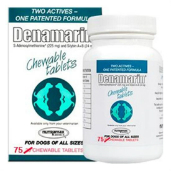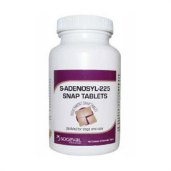Liver disease is a potentially fatal condition in dogs with numerous possible causes, including toxins, chemicals, drugs, and diseases such as hepatitis and leptospirosis. Without prompt treatment, liver disease is always disabling or deadly. Fortunately, some cases of early liver disease are reversible with proper veterinary care
"Treatment during earlier stages of liver disease can restore some or all liver function because the liver is able to heal itself."
Symptoms and Stages of Liver Disease

In early stages of liver disease, symptoms are often vague and may be mistaken for signs of other conditions. Some dogs may experience reduced appetite, intermittent diarrhea and vomiting, and/or weight loss. Fever may or may not be present, and increased thirst and urination may lead some dog owners to worry their pet is diabetic or has an infection. It is these symptoms that typically cause pet owners to seek veterinary attention.
Early liver disease causes swelling and enlargement of the liver. Depending on the underlying cause, this process may take place over months or years. As the disease continues to progress, liver cells die in increasing numbers and are replaced by scar tissue. The formation of scar tissue, or cirrhosis, causes the liver to become firm and rubbery. Cirrhosis is not reversible.
As the condition progresses, dogs usually develop some combination of the following symptoms:
- loss of appetite
- vomiting and diarrhea
- lethargy
- yellowing of the skin and mucous membranes
- discolored feces and/or urine
- abdominal pain
- increased water consumption and urination
- weight loss
- distended abdomen
- bleeding disorders
- disorientation and altered mental status (a condition called hepatic encephalopathy)
- seizures
- collapse
Once the liver begins to fail, additional symptoms become obvious. Jaundice and spontaneous bleeding are the most noticeable, but hepatic encephalopathy, ascites, and edema in the lower limbs also occur at this time. Dogs showing symptoms of liver failure require immediate veterinary attention.
Treating Canine Liver Disease
Treatment during earlier stages of liver disease can restore some or all liver function because the liver is able to heal itself. In fact, 80 percent of all cells in the liver must die before liver failure takes place. This makes early diagnosis and treatment of the underlying cause of liver failure essential to preventing death.
Once the underlying cause of your dog's liver dysfunction is uncovered and the extent of liver damage is determined, treatment with dietary changes, surgery, medications, and/or supplements begins.
Surgery helps by removing tumors or clearing blockages, and dietary changes are an essential part of improving overall liver health and preventing liver strain. Because some dogs with liver disease experience severely reduced appetite, supplemental or forced nutrition may be necessary to ensure adequate intake of calories, vitamins, and minerals.

Most dogs with liver disease will require some form of medication at some point during their illness. Antibiotics helps treat and prevent infections, diuretics reduce fluid retention, and corticosteroids can improve inflammation and scarring in the liver.
Supplements and diet also play an important role in liver health, and your dog may benefit from a daily multi-vitamin or supplemental vitamin K, vitamin E, milk thistle, and/or S-adenosylmethionine (SAMe). Denamarin is another popular liver supplement for dogs that contains both S-Adenosylmethionine and Silybin. Because pets with liver disease commonly suffer from a poor appetite and weight loss, they should eat a palatable, nutritionally dense food made from healthful ingredients. A reduced level of protein helps patients that have begun to suffer from hepatic encephalopathy.
References
http://pets.webmd.com/dogs/liver-disease-liver-failure-dogs
http://canineliverdiseasefoundation.org/
http://www.ncbi.nlm.nih.gov/pubmed/15080872
The above is provided for information purposes only and should not be used for the diagnosis or treatment of any condition.
This information does not cover all possible variables, conditions, reactions, or risks relating to any topic, medication, or product and should not
be considered complete. Certain products or medications may have risks and you should always consult your local veterinarian concerning the treatment of
your pet. Any trademarks are the property of their respective owners.